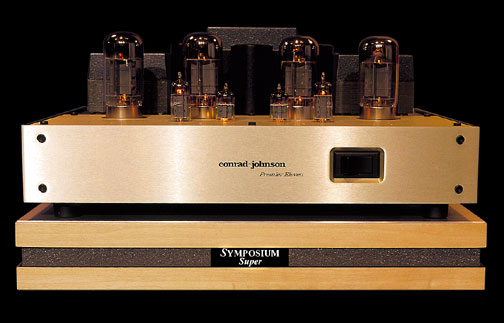Quote:
Originally Posted by Know Talent /img/forum/go_quote.gif
It can be done but you must really screw up the design
|
That's funny.
On a serious note, Bob Carver did it...
"Carver caused a stir in the industry in the mid-1980s when he challenged two high-end audio magazines to give him any audio amplifier at any price, and he’d duplicate its sound in one of his lower cost (and usually much more powerful) designs. Two magazines took him up on the challenge.
First, The Audio Critic chose a Mark Levinson ML-2 which Bob acoustically copied (transfer function duplication) and sold as his M1.5t amplifier (the “t” stood for transfer function modified).
In 1985, Stereophile magazine challenged Bob to copy a Conrad-Johnson Premier Five (the make and model was not named in the challenge but revealed later) amplifier at their offices in New Mexico within 48 hours. The Conrad Johnson amplifier was one of the most highly regarded amplifiers of its day, costing in excess of $12,000.
Of note that in both cases, the challenging amplifier could only be treated as a “black box” and could not even have its lid removed.
Nevertheless, Bob, using null difference testing, successfully copied the sound of the target amplifier and won the challenge. The Stereophile employees failed to pass a single blind test with their own equipment, and in their own listening room. He marketed “t” versions of his amplifiers incorporating the sound of the Mark Levinson and Conrad Johnson designs which caused him some criticism by those who failed to understand the true nature of the challenge — that it was possible to duplicate an audio amplifier's sound in two completely dissimilar designs. In light of this criticism, Bob Carver went on to design the Silver Seven, the most expensive and esoteric conventional amplifier up to that time and duplicated its sound in his M 4.0t and later models which sold for some 1/40th the price (around $600-$1500)."
pair of Mark Levinson ML-2, 25 watts per channel mono-blocks
Conrad-Johnson Premier Eleven stereo amplifier $3,295 (not the Premier Five)
(Premier 5 mono-block: $12,000)
Carver M1.5t stereo amplifier
~$1,000
Wikipedia --> Bob Carver







